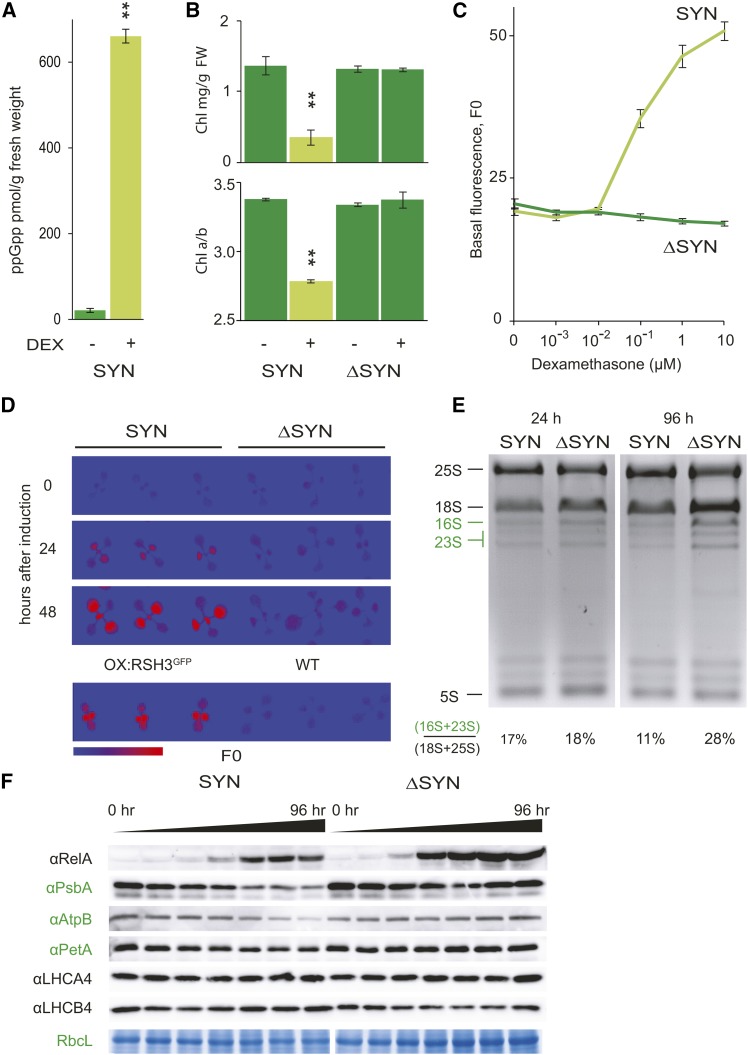Figure 3.
Conditional Expression of a Bacterial ppGpp SYN Reduces Chloroplast Function.
SYN plants contain a transgene encoding a chloroplast-targeted ppGpp synthase from bacteria under the control of a dexamethasone-inducible promoter. ΔSYN plants contain a transgene encoding a catalytically inactive variant of SYN.
(A) SYN induction results in a large increase in ppGpp levels, P = 0.000003. ppGpp was extracted and quantified 72 h after induction of SYN seedlings grown on plates for 12 DAS by submersing with either the carrier (DMSO) or 30 µM dexamethasone (DEX) for 3 min. Data are presented as the means of three independent biological replicates.
(B) and (C) SYN and ΔSYN seedlings were analyzed for chlorophyll content and chlorophyll a/b ratios 4 days after induction with dexamethasone, **P < 0.001, versus DMSO control (n = 4 plants) (B) and F0 after 8 d growth on plates containing different concentrations of dexamethasone (n = 18 plants) (F0, arbitrary units) (C).
(D) to (F) After induction of SYN and ΔSYN plants 12 DAS, changes in F0 (F0 false-color scale bar, 50 to 350 arbitrary units) (D), rRNA (E), and chloroplast proteins (F) were followed. Chloroplast proteins were detected by immunoblots on equal quantities of protein using the indicated antibodies. Anti-RelA detects the SYN and ΔSYN proteins. Samples were taken at 0, 2, 4, 8, 24, 48, and 96 h after induction. RBCL was revealed by Coomassie Brilliant Blue staining. Chloroplast-encoded proteins and rRNAs are in green. Significance was calculated using the two-way Student’s t test. Error bars indicate se.

